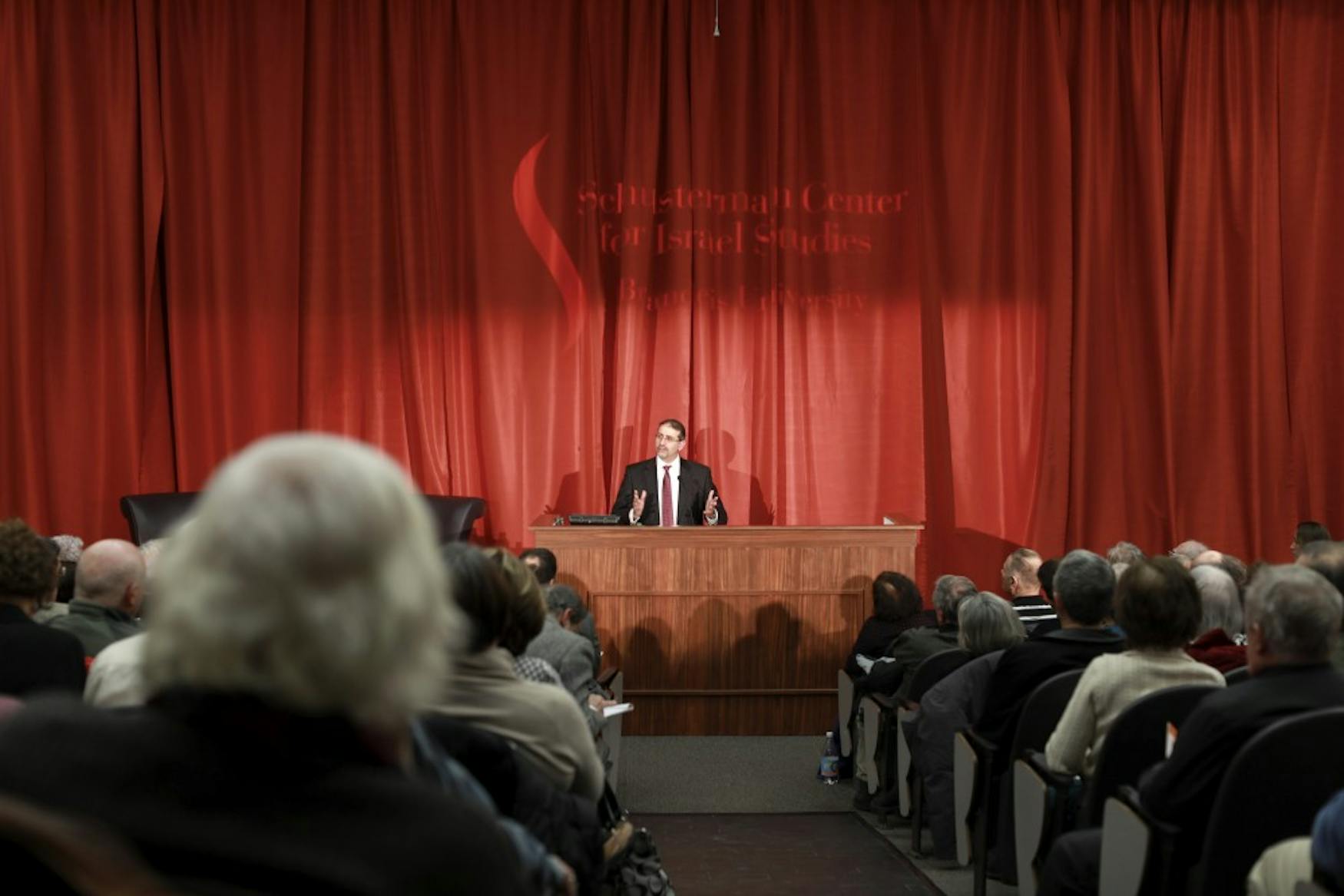Former ambassador talks of Israeli-American relationship
Kicking off the two-day event for the Schusterman Center for Israel Studies’ 10th anniversary, keynote speaker and former United States Ambassador to Israel Daniel Shapiro ’91 discussed the impact that a developing Middle East has and will continue to have on both the United States and Israel.
Rabbi David Ellenson, director of the Schusterman Center, set the tone for the event as he discussed the necessity of understanding the University's history in his opening remarks. He explained history is not “something that is simply in the past” but rather, it defines “who we are at the present, and who we aspire to become.” He added that it is important to understand the historical ties that the University has to Israel, and use it to gain “an understanding of the heritage of Judaism.”
Understanding the University’s history and ties with Israel is the first step to approaching current challenges and discussions, Ellenson asserted. Shapiro explained this further in his keynote speech titled “The United States and Israel Face a Changing Middle East.”
Shapiro was appointed in 2011 by President Barack Obama as the United States ambassador to Israel. He managed United States-Israel relations during Israeli-Palestinian negotiations, including the Iran Nuclear Deal.
He explained that Israel is moving to the forefront of development, as it has “strengthened its relationship in Asia, Africa and Latin America,” but still faces challenges with regards to how Israeli and American interests “can be more closely aligned.” With this in mind, his discussion focused on how Israel and the United states can “continue to cooperate, while managing differences, so as to limit risk and advance opportunities.”
He observed that, while American and Israeli interests remain closely aligned, such as in the area of confronting the threat of terrorism, the countries’ interests can differ with regards to “strategic interests, including prioritizing questions of democracy in the Arab world.” With these questions, he explained, it is important to focus on areas of convergence for the countries’ shared interests, while acknowledging what is different.
“Confronting these types of questions honestly,” he explained, “can strengthen our relationship.” Referencing the Iran nuclear deal, Shapiro highlighted the difference in strategy that the countries will undertake to enforce the deal. He added that the U.S. and Israel both agree on confronting potential threatening activities, but “may disagree on the use of certain tools to use” as well as “when to use them.”
Shapiro’s discussion took an analytical approach toward conflicts in the Middle East, and with each country’s strategies in mind, he weighed the benefits and consequences of extending or ending the 2015 Iran Nuclear Deal, an agreement between the U.S., UK, Germany, Iran, France and China, which restricts Iran’s ability to enrich Uranium for nuclear processes. However, there is also a time component to the countries' responses, he explained, as there is a “potential stability tradeoff in the short term versus long term strategies,” because each country’s response has a potential to sustain mutual benefits. He asserted that differences in the costs of each country’s strategies are “a point of divergence in how situations in the Middle East are handled.”
He closed by explaining that “what ensures the durability of the partnership is not that we never disagree, but when we disagree and find ourselves in less identical terms, we have to acknowledge those differences where we are not fully aligned.” He added, “Whenever possible, we must avoid acrominy and partisanship, and find the common path.”
Only after observing these differences and maintaining open communication between the United States and Israel, he explained, can the “divergence of strategies ... be managed,” serving “both our countries’ interests.”



Please note All comments are eligible for publication in The Justice.